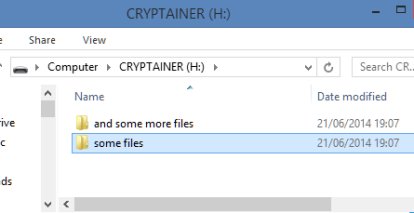If someone hacks into your computer, or steals it, they can read all of the files stored on it. Chances are, most of them are totally harmless. After all, if someone gets to see your family photos or your general documents, it's rarely a problem. But most people have a handful of confidential files that they'd rather remained private. Personal documents, perhaps, or financial information, or business dealings, or intimate photos.
If you have such files on your computer, encrypting them will give you the peace of mind of knowing that, if they were to fall into the wrong hands, chances are they would not be readable. And yes, I'm well aware that the NSA may be able to break just about every encryption product out there, but it's very unlikely that the type of information you're protecting needs to be safe from the prying eyes of the world's intelligence agencies. For most people, knowing that the casual hacker or thief can't access your data should be perfectly sufficient.
Until recently, Truecrypt was the freeware encryption product of choice. It was free, easy to use, and did everything we needed. Which generally means that it allowed you to create a virtual drive to store all your private files, which only became accessible when you supply the password. Without the password, the virtual drive is merely a file of gibberish. Easy to backup, store and transport, which is great, but impossible to make sense of.
For reasons that no one is quite sure of, the developers of Truecrypt recently shut up shop. It's no longer possible to download the product, except in a form that merely lets you access previously-encrypted files. So whether you're new to encryption, or you need something in place of Truecrypt, you'll need other software to consider.
I've recently been looking at Cryptainer, from a company called Cypherix. It works in a very similar way to TC, in that it creates an encrypted container file which, on entering the password, becomes a virtual encrypted drive that you can access through Windows as you would with any other removable device. The program costs money, but the "LE" version, which lets you create encrypted containers of up to 100 MB, is free. And if you need more, you can always create more than one container.
If you want to try it, head to http://www.cypherix.com/cryptainer_le_download_center.htm for the 7 MB download. It runs on Windows XP and above, and is malware- and virus-free according to Web of Trust and VirusTotal. And if you're still using Truecrypt, it'll happily coexist with that program while you make up your mind on which one to use into the future.

 We are looking for people with skills or interest in the following areas:
We are looking for people with skills or interest in the following areas:

Comments
There is another freeware application, Veracrypt, which is available on Softpedia (reputable site)
Interestingly it looks exactly the same as TrueCrypt
I wouldnt use it, for two reasons
1)Still only on version 1.0, I dont risk any of my data to recently written software
2)There is no evidence that a lot of the code isnt taken directly from TrueCrypt, and so is jut an imitation product. Hard to say
However, is an alternative available
Diskcrypt may be a sufficient alternative, but only if you need to encrypt disk drives. For those people who still want to use truecrypt, it IS still available as a discontinued version. There is version 7.1a and more information in this site. https://www.grc.com/misc/truecrypt/truecrypt.htm
IMO, DiskCryptor the is the best free open-source option so far. In fact, it is an enhanced fork of TrueCrypt. Hopefully, it won't face the same problems and conspiracy theories its bigger brother had. It's a great piece of free software and a good alternative to former TC users.
The trouble with Crypto programs are/is what happens to its development when the author dies in a wreck, retires, or goes out of biz?
Or what happens when Windows puts "poodle-poop" (made up DLL) in the OS and your non-open source crypto program cannot deal with "poodle-poop"? Oops. Broken.
OpenSource is the only way to go. It can never die that way. My 2 cents.